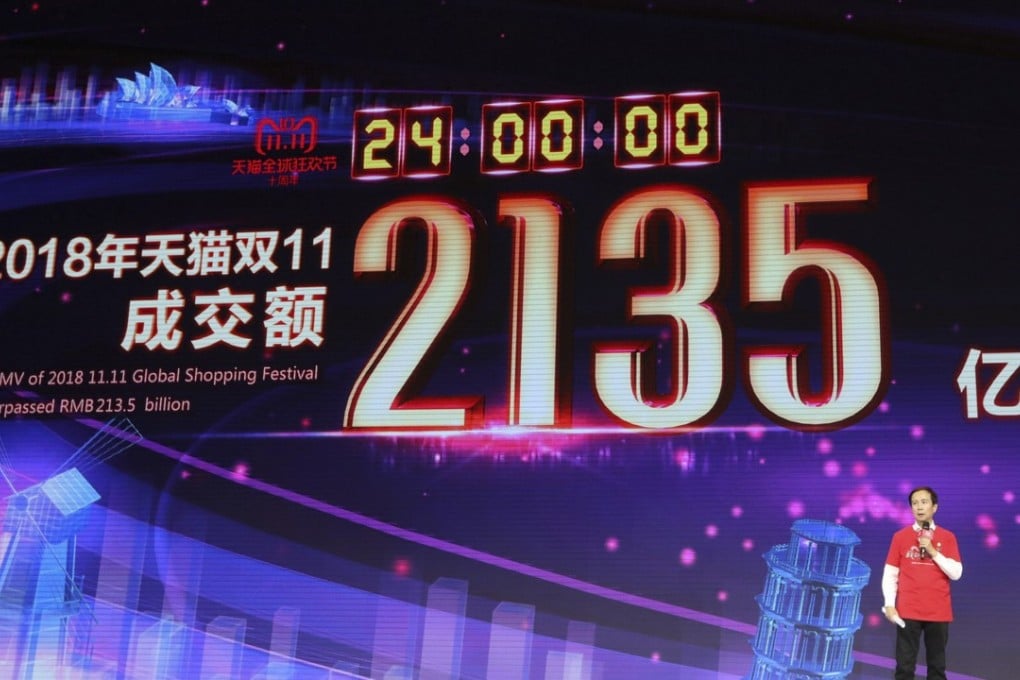Alibaba sets record US$30.8 billion for Singles’ Day sales, underscoring resilience in consumer spending
- Sales tally surpassed last year’s record at 3.49pm on Sunday
- Singles’ Day sales performance increasingly seen as a barometer for China retail health and consumer confidence

Alibaba Group Holding set a record 213.5 billion yuan (US$30.8 billion) in Singles’ Day sales, underscoring the resilience in consumer spending in the world’s second-biggest economy.
The gross merchandise value was about 27 per cent higher than last year’s tally, also a record, which was surpassed mid-afternoon on Sunday. Sales were helped by the participation of Alibaba’s Southeast Asia unit Lazada Group. The final tally excluded sales from other businesses that participated in the shopping festival, such as Ele.me and the Hema supermarket chain.
"Chinese consumers, especially the millennials, are incredibly confident about their futures, and that tends to enable spending, when you feel like you're going to make more next year than this year," said Jeffrey Towson, a professor of investment at Peking University Guanghua School of Management. “It's commerce but it's also entertainment, this is not necessarily people who are buying stuff that they need in life, it's a big festival, it's fun and there are good discounts."
The US-China trade war will not derail the rise of China’s middle-class consumers, who are estimated to double to 600 million in the next 10 to 15 years and will power a long-term upgrading of consumption spending, said Alibaba executive vice-chairman Joe Tsai.
“China has developed consistently over the last 20 years,” Tsai told reporters in Shanghai on Sunday. “China’s GDP per capita was about US$800 per person back in 1999 when I joined the company, and has risen to about US$9,000 per person today, an average across 1.3 billion people. Is it going to US$20,000, US$30,000 in the future? Absolutely, it’s happening.”
Consumers took less than two hours to rack up 100 billion yuan in purchases after the festival began at midnight, a milestone that took seven more hours to achieve last year. In just 30 minutes, 30 brands including Nike, Adidas, Apple and Xiaomi had crossed 100 million yuan in sales. MAC sold out its 3,700 special edition lipsticks in one second.